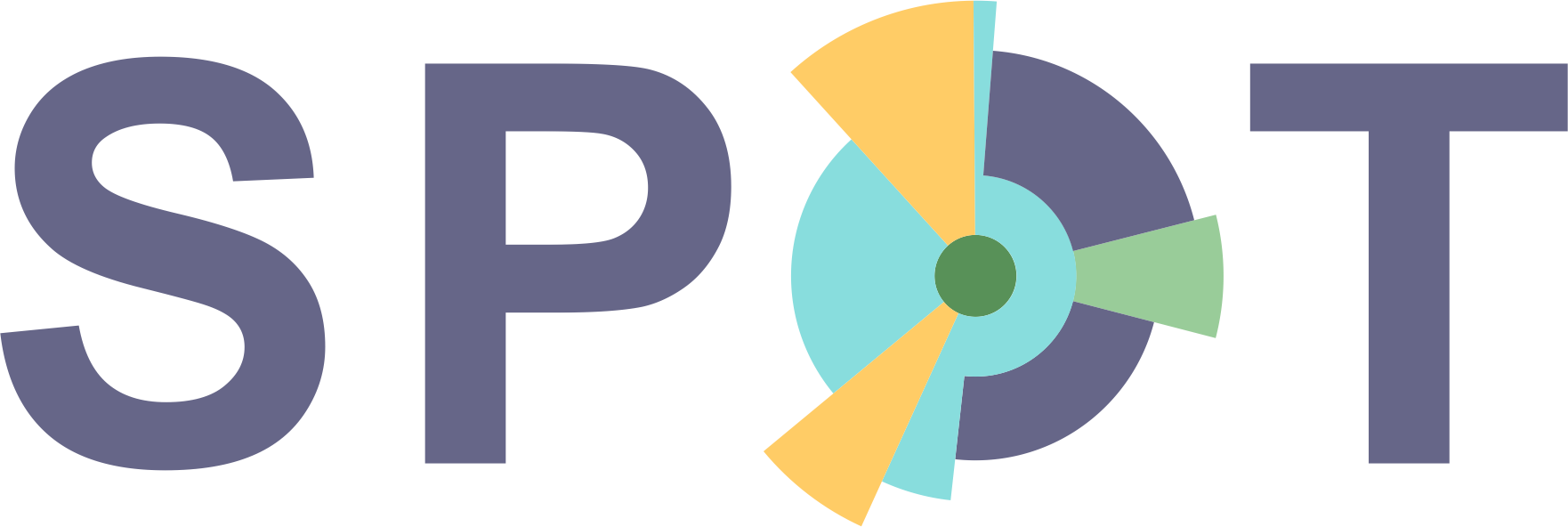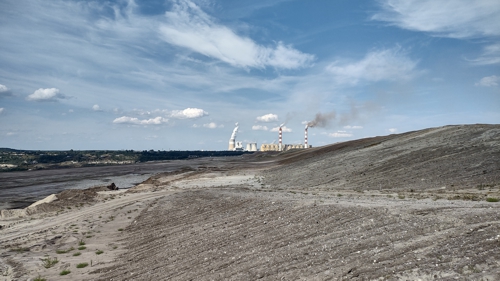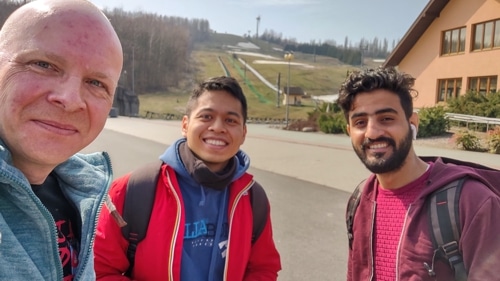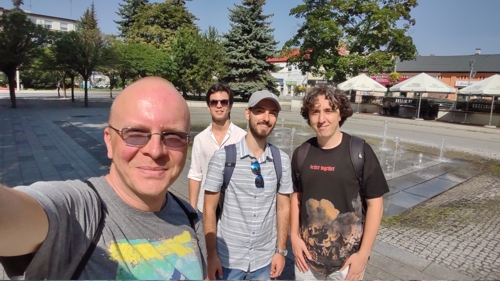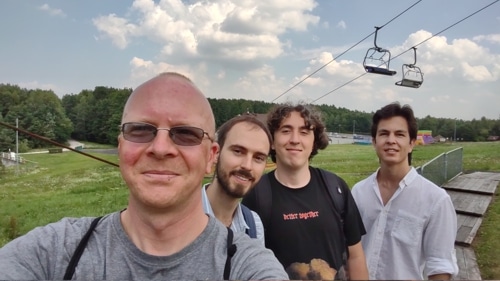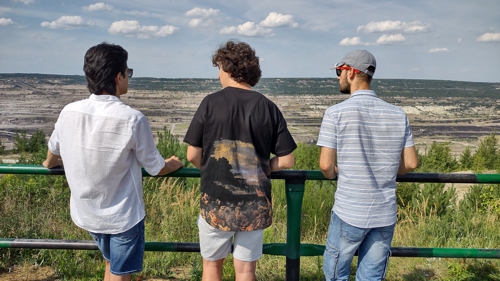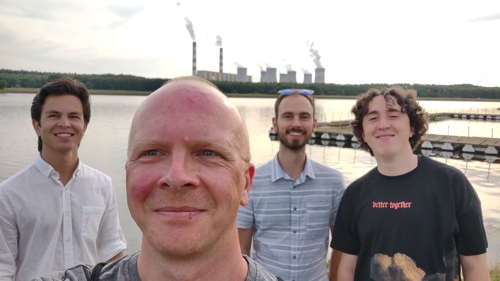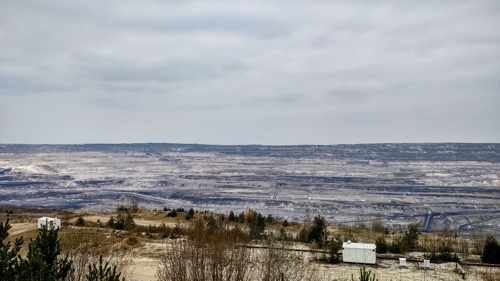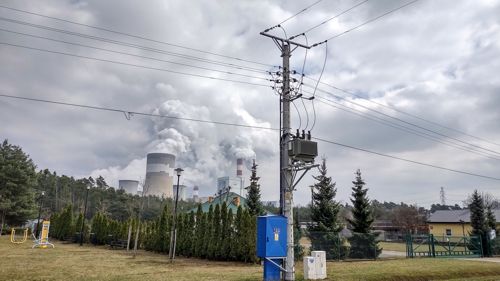During spring and summer in 2021, the Faculty of Geographical Sciences at University of Lodz hosted 5 marvelous students: Abdurrahman (Turkey), Hubert (Poland), Joromain (Italy), Mohammed (Yemen), and Rovshen (Turkmenistan). All of them joint our internship programme and contributed to the SPOT project. They were very first students travelling with our project manager Tomasz Napierała to discuss the issues and problems of Polish case study on the spot.
Our interns saw the industrial region of Bełchatów, and get to know about industrial history of the area which started in the mid-1970s when Bełchatów Mining and Power Engineering Complex was established. Brown coal mining by opencast method caused landscape degradation and significant changes in the natural environment. Local cultural heritage was either translocated or irretrievably lost. Nowadays, the future of Bełchatów industrial region is shaped by the European Green Deal. To make the European Union climate-neutral by 2050, the lignite mine in Bełchatów industrial district will be closed, and the way the power plant works will be transformed. This decision will directly hit 10,000 jobs in the region populated recently by approximately 130,000 inhabitants.
Our interns considered most crucial challenges of the recent situation of Bełchatów industrial region. They identified significant differences between Kleszczów commune, financially benefitted by local taxes paid by Bełchatów Mining and Power Engineering Complex, and surrounding areas. Hubert emphasized:
The main and the biggest disadvantage of the region is unequal development of its parts. The differences in infrastructure are bigger than it seems on the beginning. It’s very hard to manage such a diverse region. Even with big economic support could change it in a slow way. The inequality in development trigger also social conflicts.
Our interns were aware of the idea of sustainable development. Abdurrahman underlined:
Agriculture, industry and trade should be developed in the area without harming the environment.
As thus, we have discussed with our interns how tourism can contribute to sustainable development of the Bełchatów industrial region. Joromain noticed:
Now the region doesn’t have a strong tourist image, being only a region with decent tourist resources. A stronger tourism promotion could help this area from the tourist’s point of view. But now we need to find a solution for the power plant. When this structure will no longer work, many people will lose their jobs. The power plant and the coal mine will become an “empty space” for the inhabitants of the region. Maybe it could be transformed into tourist places?
Rovshen for sure saw the potential of Bełchatów industrial district for tourism development in the future. He emphasized:
I believe that the destination has to offer something unique, something that visitors will always remember, a different experience. Especially nowadays adventure lovers are seeking to find the places like that.
To summarize, we are glad that our interns truly enjoyed the trip. It was really nice to hear what Mohammed said after the study visit:
I guess I was lucky enough to start my education period in Poland by the trip, especially during the COVID-19 period when almost everything was online. It was a starting point of my internship in the SPOT project. What distinguishes this trip is that everything was new and special. It was my first time to meet Tomasz Napierała and my colleagues. Everyone has different nationality and perspective. I was so curious before the trip because it was mixed between enjoying, thinking, and challenging.
